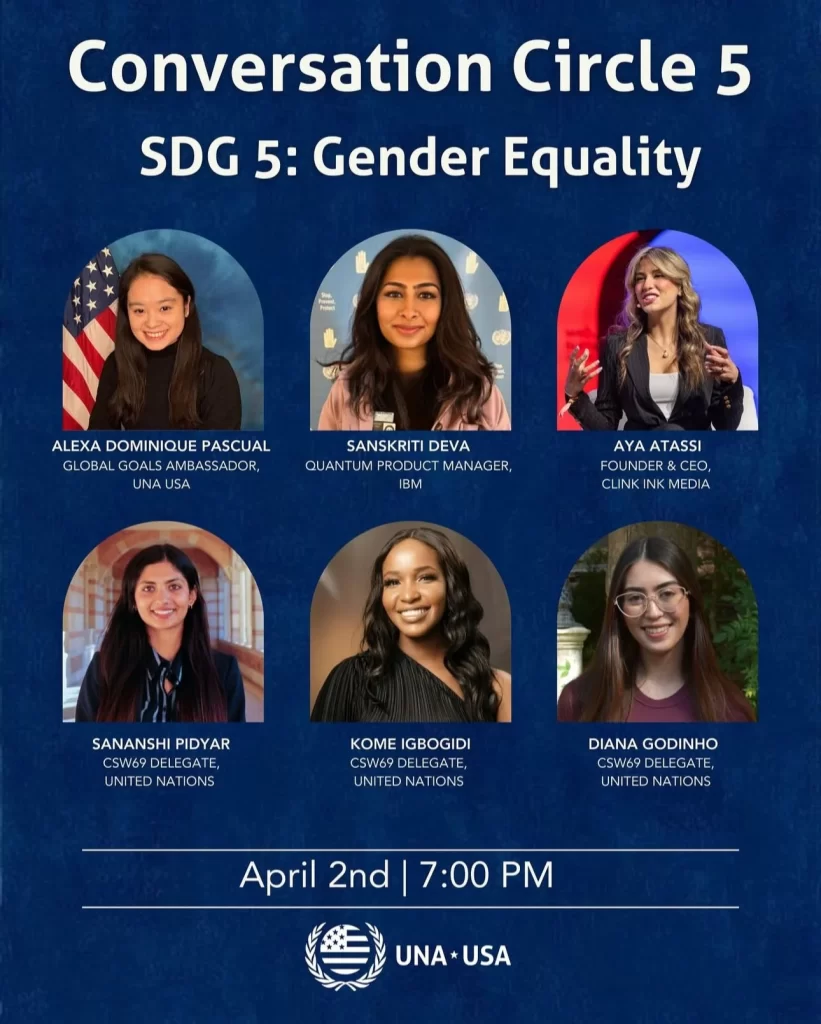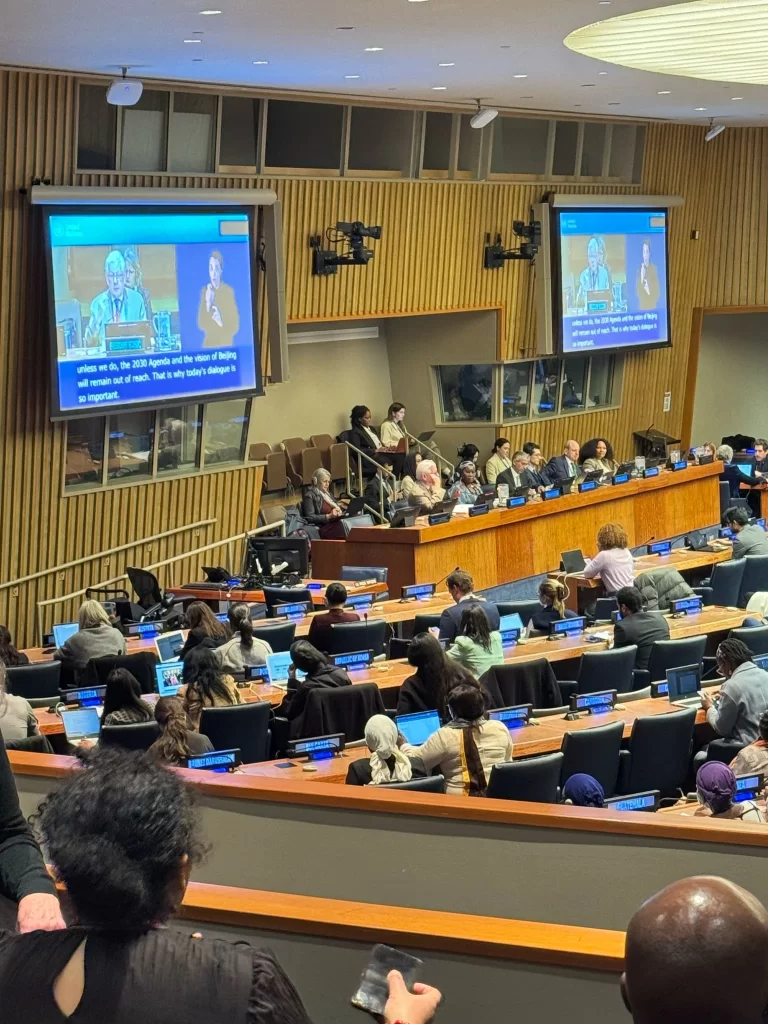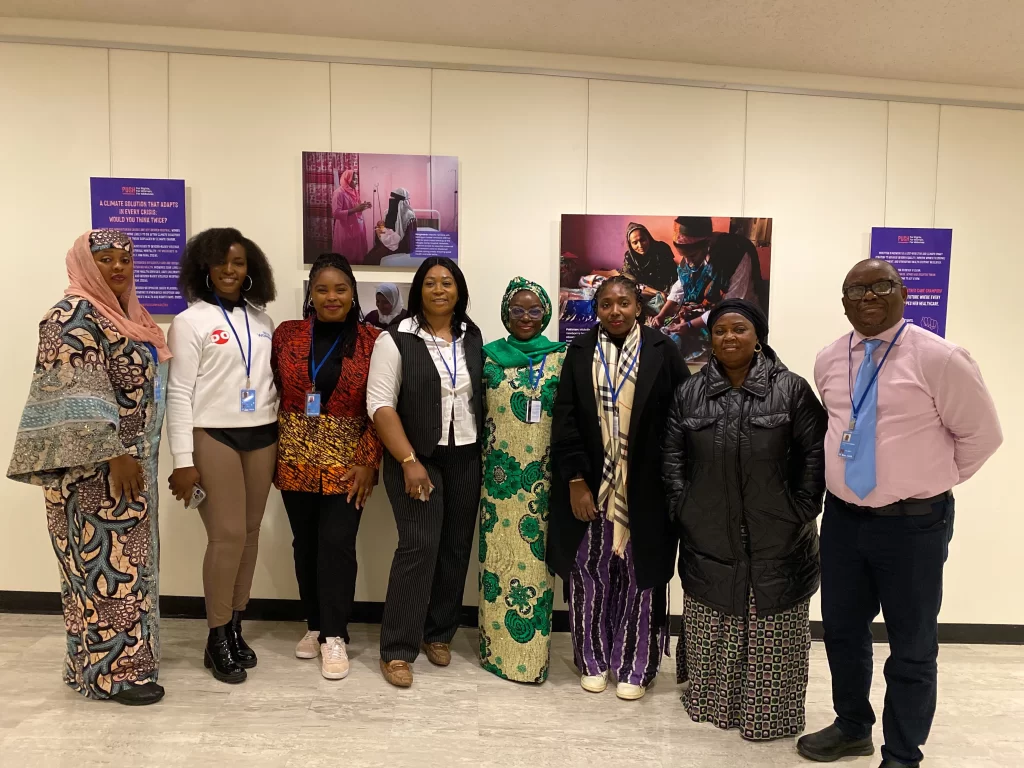The dawn of artificial intelligence (AI) presents unprecedented opportunities to advance sustainable development globally. As an advocate, leader, and grassroots development champion at DoTakeAction, my recent participation at the 69th session of the Commission on the Status of Women (CSW69) has further solidified my commitment to leveraging technology and innovation for meaningful impact.

At CSW69, global leaders, policy-makers, and activists came together with the shared vision of achieving gender equality and empowering women and girls through innovation, education, and technological advancement. In particular, conversations around digital innovation, AI ethics, and equitable technological access dominated the discussions. It became evident that if we aspire to realize Agenda 2030, strategic integration of AI into grassroots initiatives is essential.
Reflecting upon these insights, and my interactions at the UN Headquarters, it is clear that our journey towards the SDGs demands both global thinking and local actions. This perspective aligns perfectly with my role at DoTakeAction, where we consistently champion grassroots empowerment, advocacy, and local leadership to drive global change.
DoTakeAction has always stood at the forefront of sustainable change, rooted deeply in the belief that real impact begins locally. Our advocacy spans education, empowerment, economic equity, and innovation—pillars crucial to sustainable development. With our expansive global network, DoTakeAction leverages international platforms to amplify local voices, bridging global ideas and grassroots realities.
In my capacity as a Grassroots Development Champion at DO, I continuously advocate for increased adoption of AI-driven solutions, highlighting their potential to accelerate progress towards goals such as poverty alleviation, quality education, gender equality, and economic empowerment. Through strategic international engagements, workshops, and advocacy forums, we have successfully positioned DO as a key stakeholder in global conversations on digital innovation and sustainable practices.

To effect this, I am honored to lead collaborative engagements with the United Nations Association of the National Capital Territory (UNA-NCA) Young Professional Programs. Through this initiative, we aim to mobilize young global leaders—those poised to become tomorrow’s decision-makers—to recognize and embrace the transformative power of AI for sustainable development. The goal is to equip them not just to think globally, but to act effectively within their local contexts.
We are spearheading the “AI for Good” campaign, a comprehensive series of dialogue circles, workshops, and practical sessions designed to explore actionable strategies for implementing AI in grassroots community projects worldwide. Our approach prioritizes inclusivity, addressing critical barriers such as technology accessibility, capacity building, and ethical AI use.
The potential of AI technologies to create tangible impacts in grassroots communities cannot be overstated. AI-powered solutions can dramatically enhance agricultural productivity, educational accessibility, healthcare delivery, environmental protection, and gender equality initiatives—areas critical to achieving the SDGs. This aligns with our global mandate at DO to champion projects where AI is integrated thoughtfully and ethically, ensuring that benefits reach the most marginalized and vulnerable populations first.
For instance, through strategic collaborations, we have supported AI-driven educational programs aimed at empowering women and girls in rural communities, reducing barriers to digital literacy and economic empowerment. Similarly, in agricultural regions, AI has enhanced resource management and market accessibility for smallholder farmers, dramatically improving livelihoods and economic resilience.





